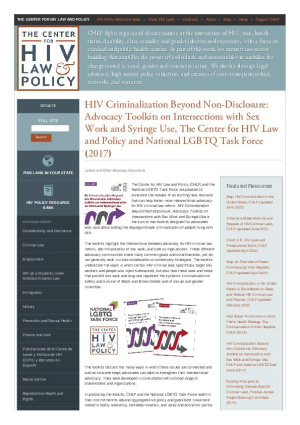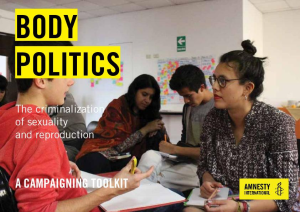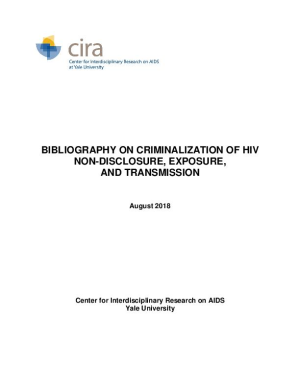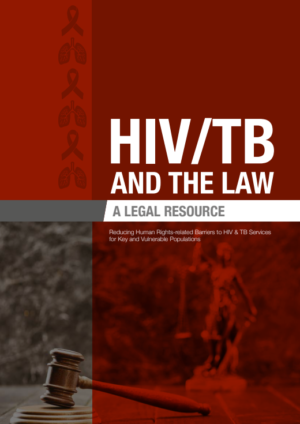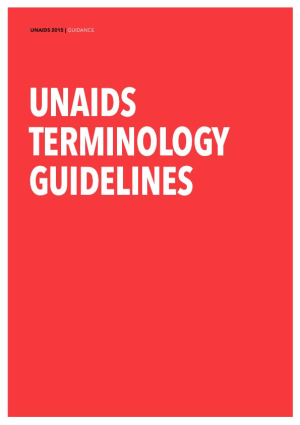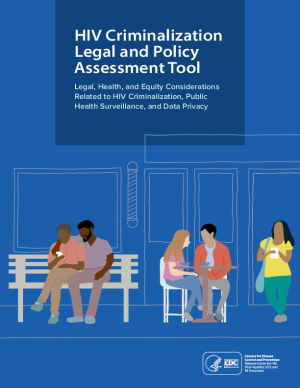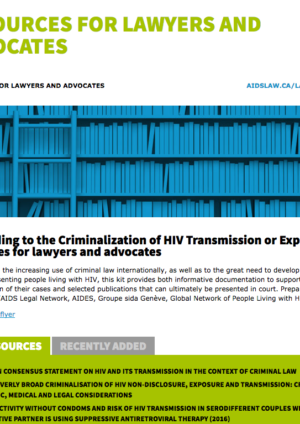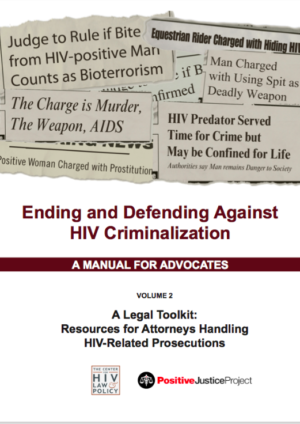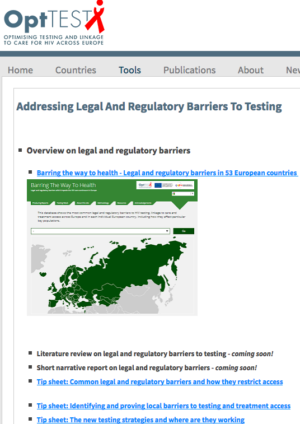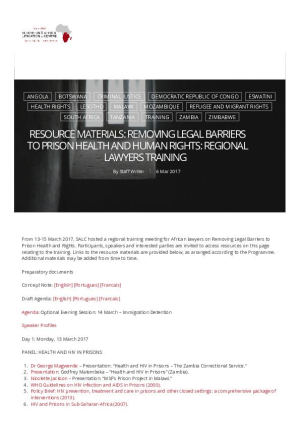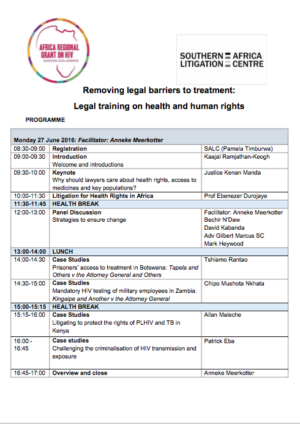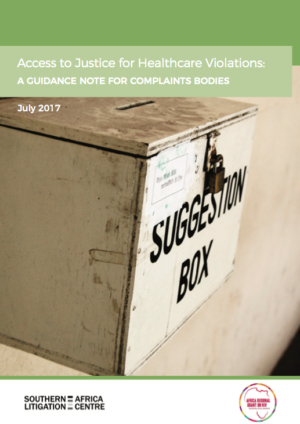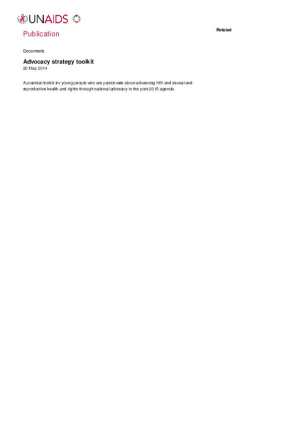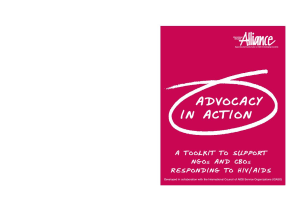This 2017 toolkit from The Center for HIV Law and Policy (CHLP) and the National LGBTQ Task Force highlights intersections between the criminalisation of sex work and HIV, noting both disproportionately affect people from marginalised communities. Urges the building of stronger linkages across HIV criminalisation and sex work movements, and provides tips to make advocacy more inclusive, effective, collaborative and transformative.
Resource collections
This sections includes a list of other resource collections produced by others that relate to HIV criminalisation or HIV and human rights advocacy more broadly that contain many useful insights into advocacy techniques.
Body Politics: The Criminalisation of Sexuality and reproduction – A campaigning Toolkit
Provides concrete campaigning techniques such as mapping stakeholder participation and power, identifying advocacy targets, and building capacity
Body Politics: A Primer on Criminalization of Sexuality and Reproduction
Details the major areas of concern and the harm which both direct and indirect criminalization inflict on an individual’s human rights and the health of society as a whole.
Bibliography on Criminalization of HIV Non-Disclosure, Exposure, And Transmission
Overview of resources outlining criminal laws and analyses of case laws; empirical research in the US and Canada; legal and public health analyses; guidance, fact sheets and talking points; policy and consensus statements, and other relevant references on criminalization in a North American context.
The Intersection of Syringe Use and HIV Criminalization: An Advocate’s Toolkit
This 2017 toolkit from The Center for HIV Law and Policy (CHLP) and the National LGBTQ Task Force highlights intersections between the criminalisation of injecting drug use and HIV, noting people living with HIV who inject are criminalised in multiple ways including by laws targeting sharing equipment; purchasing, possessing or distributing equipment; drug possession and use; and HIV exposure, non-disclosure and transmission. Notes repeated calls to address substance use as a public health issue, and provides tips to make advocacy more intentional, intersectional, inclusive, and effective.
Reducing Human Rights Related Barriers to HIV & TB Services for Key and Vulnerable Populations: Legal Support Resource
The legal support resource is part of an on -going human rights programme with the goal of reaching key and vulnerable populations by utilising customised and targeted interventions. These interventions include activities on (1) legal empowerment;(2) training of paralegals on issues related to HIV, TB and human rights; (3) legal and paralegal support to community members whose human rights have been violated including pursuing identified matters to court; and (4) sensitisation of judiciary, law makers and traditional leadership especially those involved in traditional courts.
It gives practical information on current and evolving legislation, common law and policies pertaining to HIV and TB in South Africa. The aim is to educate, sensitise and provide updated information to paralegal and legal practitioners alike, who are engaged in offering legal advice and services to individuals and communities who serve members of the vulnerable and key populations.
New Tech Brief: Roadmap for Key Populations Advocates Navigating the Global Fund
This technical brief seeks to provide an overall snapshot of how the Global Fund mechanism works, to help key populations navigate the pathway to securing funding for their work. It offers toolkits, policy briefs, trainings and other materials that explain different steps of that process in more detail. It also includes case study examples of successful key population programs supported by the Global Fund, in hopes that they inspire creativity, innovation and persistence in driving this work forward.
UNAIDS Terminology Guidelines – 2015
Language shapes beliefs and may influence behaviours. Considered use of appropriate language has the power to strengthen the global response to the AIDS epidemic. That is why the Joint United Nations Programme on HIV/AIDS (UNAIDS) is pleased to make these guidelines to Preferred terminology freely available for use by staff members, colleagues and other partners working in the global response to HIV
HIV Criminalization Legal and Policy Assessment Tool
This HIV Criminalization Legal and Policy tool was developed to assist states’ decision makers in assessing their HIV criminalization laws alignment with current scientific and medical evidence, and their intersection with HIV data privacy laws.
The tool enables an objective assessment of a jurisdiction’s laws, regulations, and executive orders that control HIV surveillance and prevention. The tool can also help identify opportunities to strengthen legal and policy protections for people with HIV — protections that are also likely to benefit public health more broadly—by aligning them with evidence-based best practices.
Responding to the Criminalization of HIV Transmission or Exposure: Resources for lawyers and advocates
In response to the increasing use of criminal law internationally, as well as to the great need to develop tools for lawyers representing people living with HIV, this kit provides both informative documentation to support lawyers in the preparation of their cases and selected publications that can ultimately be presented in court. Prepared by: Canadian HIV/AIDS Legal Network, AIDES, Groupe sida Genève, Global Network of People Living with HIV (GNP+)
- Alternative links
- French / Français
A Legal Toolkit: Resources for Attorneys Handling HIV-Related Prosecutions
This toolkit produced by the Center for HIV Law and Policy (CHLP) for the Positive Justice Project in 2013, provides multiple resources (including case law, legal analysis and scientific data) for lawyers representing people facing HIV criminalisation, and other advocates.
OptTEST: Addressing Legal And Regulatory Barriers To Testing
This EU-funded project on improving access to testing and treatment continuum includes some detailed and informative HIV criminalisation case studies (Netherlands, Denmark and England & Wales) as well as nine advocacy tip sheets such as 'Simple principles for effective campaigning', 'Getting the evidence for policy changes' and 'What can we do when politicians ignore the evidence?'
Removing Legal Barriers to Prison Health and Human Rights: Legal Training for African Lawyers
Between 13-15 March 2017, SALC hosted a regional training meeting for African lawyers on Removing Legal Barriers to Prison Health and Rights. A huge amount of resources relating to the training are contained here. Links to the resource materials are provided, as arranged according to the Programme. Additional materials may be added from time to time.
Removing legal barriers to treatment: Legal training on health and human rights
On 27-29 June 2016, the Southern Africa Litigation Centre (SALC) hosted a regional training meeting for African lawyers on “Removing legal barriers to treatment: Legal training on health and human rights” in Johannesburg, South Africa. A large amount of resources relating to the training can be found here, including judgements relating to HIV criminalisation in Africa.
Access to Justice for Healthcare Violations: A Guidance Note for Complaints Bodies
This Guidance Note aims to provide concrete recommendations to alternative complaints mechanisms on how to provide safe, accessible and effective remedies for vulnerable and key populations who experience health rights violations.
Alternative complaints mechanisms are, for the present purposes, understood as those processes identified to be able to receive and determine complaints relating to health care outside of formal court procedures. These include healthcare regulatory bodies, such as health professions councils and nursing councils; decentralised complaints processes, such as complaints processes within ministries of health or health facility-based complaints mechanisms; and national human rights commissions and ombudspersons.
Advocacy strategy toolkit
A practical toolkit for young people who are passionate about advancing HIV and sexual and reproductive health and rights through national advocacy in the post-2015 agenda.
- Alternative links
- Spanish/Espanol
Advocacy in action: A toolkit to support NGOs and CBOs
This toolkit, produced jointly by the Alliance and the International Council of AIDS Service Organizations (ICASO), shows NGOs and CBOs how they can use advocacy to influence people in power, to create an environment that protects the rights, health and welfare of everyone, whether HIV positive or negative. It sets out to build practical skills, provide a training resource and continue learning.

